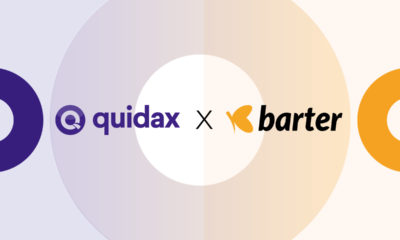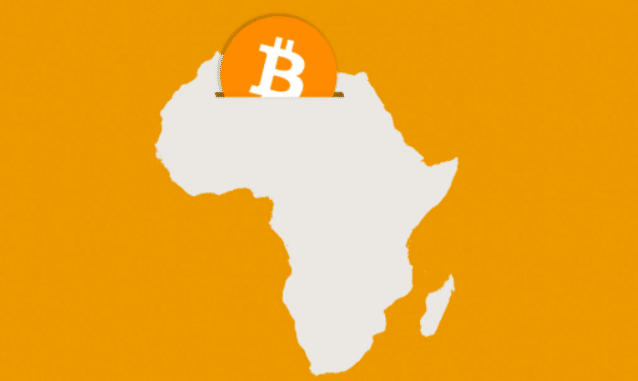Features
How FinTech Companies Changed Africa
Published
6 years agoon
Although Africa’s economies may be lagging behind its more developed counterparts, it seems that the continent is not immune to the global fintech revolution. Africa started witnessing a substantial surge in fintech startups in 2015. The total funding from venture capitalists spiked by 51 percent to $195 million between 2016 and 2017, with fintech funding accounting for a third of the amount. That’s a significant amount given that total global funding for seed-stage companies, early-stage venture capitalist rounds, and VC rounds was $851 million, $7.137 billion, and $6.9 billion respectively.
Currently, there are well over 300 startups in operation all over the continent — 94 operate in South Africa, 74 in Nigeria, and 56 in Kenya. It’s not a surprise that these three countries are spearheading the fintech revolution in Africa as they are considered the top three investment destinations in Africa.
Regional comparisons in fintech adoption show that South Africa is in the lead with around 35 percent of fintech startups concentrated in the region. West Africa follows close behind with around 34 percent.
Africa’sfintech industry to a large extent owes its existence to the development of M-Pesa, a Kenyan-based mobile money transfer service that has given Kenyans the ability to access financial services away from banks. Currently, the platform supports over 25 million customers in over ten markets in Europe, Africa, and Asia. The number of M-Pesa users has grown by 32 percent from 17.12 million to 22.62 million as of June 2017. The massive success enjoyed by M-Pesa has influenced other FinTech companies to join the finance sector to develop financial solutions such as those offered by M-Pesa.
Fintech Implementation in Africa
Fintech companies in Africa are mostly focusing on two broad categories:
- payments and transfers;
- lending and finance.
Of the two categories, payments and transfers have recorded an influx of startup companies compared to the others. Reports show that a majority of these startups focus mainly on simplifying the process of sending and receiving money.
Some fintech companies in Africa that are taking major steps in revolutionising the finance sector in Africa include (aside from M-Pesa):
- Flutterwave has operations in over 36 countries and is partnered with 10 African banks. It provides payment technologies and infrastructure to Africa’s largest financial institutions. Today, Flutterwave has processed over $1.2 billion in payments. The primary goal of Flutterwave is to provide solutions for enterprises, entrepreneurs, and banks alike. It presents its customers with no special, annual, or upfront project fees. Instead, Flutterwave bridges the digital payments gap that exists between users and banks. Their Nigerian customers can execute money transfers directly into several bank accounts without any hassle.
- Pezesha, initially launched in Kenya, is a peer-to-business micro-lending marketplace made up of low-income borrowers. In Africa, formal credit services are hard to attain, and on top of that, they have incredibly high interest rates. Therefore, most Africans are unable to secure reliable credit facilities that they can safely payback. Users of Pezesha can acquire instant loans on their mobile phones via SMS provided that minimum criteria are met. Apart from low-income earners, Pezesha also extends its services to SMEs that make up 80 percent of Africa’s employment. It not only drives up the economies of the continent but ensures the continued existence of small businesses across the continent.
- Cellulant, a digital commerce and payments service provider, is well established and operational in 11 countries. The company works with over 90 banks. The Cellulant ecosystem has support for over 100 million customers. As of January last year, the company served roughly 12 percent of Africa’s mobile consumers who utilise the platform to make payments. This year, Cellulant raised $47.5 million from a collection of investors that included Satya Capital, TPG Growth, Endeavour Catalyst, and the Rise Fund.
- Tala, a mobile technology company that’s providing access to credit by putting mobile credit services into the hands of consumers, is operational in several countries in Africa and outside Africa. The company leverages an android app that collects data from each consumer, determines their credit score, and disburses a loan in <10 minutes. So far, the company has disbursed over a million dollars to individuals in East Africa and outside Africa.
- Numida, a digital financial services company situated in Uganda, won the Kampala Seedstar World Competition in 2017. The company boasts of a 99 percent repayment rate and has since disbursed about 190 loans to 135 Ugandan SMEs. Other than providing small unsecured loans to small businesses, the firm helps these businesses digitise their financial records through the Numida app. Through the Numida app, Numida can assess a client’s creditworthiness and then issues an appropriately sized unsecured loan.
Potential of using Fintech in Africa
![]() Africa is an immense continent with different economies supporting a total population of about 1 billion individuals residing in 54 sovereign countries. Surprisingly, only about 17 percent of the entire African population is banked. With nearly 80 percent of the total population still unbanked (and up to 95 million unbanked adults in Sub-Saharan Africa alone), Africa offers a unique breeding ground for the development of the fintech industry. A significant underbanked population ensures that fintech will most likely be an enabler of financial inclusion.
Africa is an immense continent with different economies supporting a total population of about 1 billion individuals residing in 54 sovereign countries. Surprisingly, only about 17 percent of the entire African population is banked. With nearly 80 percent of the total population still unbanked (and up to 95 million unbanked adults in Sub-Saharan Africa alone), Africa offers a unique breeding ground for the development of the fintech industry. A significant underbanked population ensures that fintech will most likely be an enabler of financial inclusion.
Innovation takes time and is often a collection of economies and nations that have the financial capability to invest, research, and develop on a broader scale. African nations, not having the same capabilities as developed nations, are provided with a unique opportunity that they can leverage. They can ‘jump’ inferior and redundant stages of technology advancement and go straight to adopting innovations. For example, currently, millions of Africans are in possession of mobile phone devices without ever going through the hassle of owning a landline at all. A phase that already-developed nations could not have skipped.
Technology is a crucial driver of businesses and entrepreneurship today. Due to this, financial procedures have been developing extremely fast, and there is an immense transformation in many aspects of financial processes. The Internet penetration rate in Africa recently stood at around 35.2 percent while the mobile penetration rate in the continent stands at 44 percent. Out of these two, Kenya emerges as the strongest African country, as it has an internet penetration rate of 85 percent and a mobile penetration rate of 95.1 percent.
According to GSMA, mobile money accounts in Africa have surpassed traditional bank accounts. Mobile money accounts have been on the rise, with statistics showing a steady growth in numbers from 0.2 million to 277 million between 2007 and 2016. The number of active bank accounts in Africa was 178 million as of December 2015. This huge difference in numbers indicates the potential that Africa offers to fintech startups focused on providing payment solutions. Technology innovation coupled with increasing Internet and mobile penetration rates have made the growth of African fintech companies a possibility. Subsequently, this has substantially increased investor interest in the sector even further.
Africa Welcoming Innovation
The fintech revolution in Africa is not a PR stunt. Fintech companies are attracting a previously unbanked population while at the same time retaining already existing traditional bank customers. Digitisation is helping financial institutions deliver digital financial products and services to a greater number of customers across the continent.
Increased dependence on these innovative fintech companies is projected to reduce demand for bank services. Subsequently, this could lead to bank branches shut down, with only a few remaining as destinations for problem resolution, advice, etc. For example, Kenya’s M-Pesa mobile payment services have made it possible for P2P mobile payments to be made both locally and internationally.
These startups are redefining the industry’s perception of what it means to be called a bank. Not only do they offer bank-like services, but they also avail loans, process financial transactions, and innovate much faster than banks.
Africa is hopping onto the fintech bandwagon, learning from the experiences of developed economies such as Asia, America, and Europe, and even leapfrogging past unnecessary steps, straight to modern innovation.
This guest post was contributed by Paweł Tomczyk, founder of the blockchain-focused content marketing agency Cyberius.
You may like
-


Weekly Roundup: First Cohort of African Women Graduate from Binance Blockchain Bootcamp & More
-


Weekly News Roundup: #EndSARS Movement Turns to Bitcoin Donations, Kenya’s UTU Coin Sells Out in 5 Minutes
-


Bamboo Capital Partners, Government of Togo and Moeda Seeds Bank Launch a Fintech Impact Fund
-


Cryptocurrency Exchange Quidax Partners With Flutterwave
-


To the Blockchain And Beyond: Are Security Tokens the Third Wave in Fintech?
-


Are Kenyan Regulators Finally Changing Their Stance on Bitcoin in Kenya?
Features
Why Crypto’s Leading the Way in Africa’s Evolving Finance Landscape
Published
1 year agoon
July 24, 2023
Cryptocurrency adoption is on the rise throughout Africa. According to Chainalysis, the African crypto market is one of the fastest growing in the world, with an estimated $20 billion worth of transactions taking place per month. Meanwhile Kenya, Nigeria and South Africa are positioned in bitcoin.com top 10 global countries by Cryptocurrency Adoption.
In this article, we’ll take a closer look at the appeal of decentralised currencies in Africa and discuss how they’re leading the way in the continent’s ever-evolving finance landscape.
The Global Crypto Era
For several years now, cryptocurrencies and blockchain technology have been having a transformative effect on various industries and markets across the globe. From the disruption of the gaming industry via the emergence of play-to-earn gaming and online casino with crypto deposit platforms to smart contracts that are being used everywhere, from healthcare to real estate, the impact is evident.
With the rise of the DeFi and GameFi sectors, it’s clear that the global crypto era is now in full swing, and it’s an industry that’s gaining noticeable traction across Africa. Approximately 1.2 million Africans now actively trade cryptocurrencies, with Kenya, Nigeria and South Africa leading the way. Decentralised crypto trading platforms like Paxful and LocalBitcoins bypass financial institutions and present new opportunities for residents to buy and sell crypto tokens.
In terms of which crypto tokens are leading the way in Africa, Bitcoin (BTC) holds the position of the most dominant digital currency, with a substantial user base and trading volume. BTC is accepted and used for various purposes, including remittances and as a store of value.
Altcoins, too, are becoming more widespread in the continent, particularly Ether (ETH) and Binance Coin (BNB). Ethereum’s smart contract capabilities have fuelled its growth in the region, providing a solution to developers for building DApps (decentralised applications) that address Africa-specific challenges.
Additionally, several homegrown cryptocurrencies have emerged in recent years that are tailored to the local needs of the region. The Akoin token (AKN), for example, was founded by musical artist and humanitarian Akon as a means of powering a digital financial ecosystem in those regions with limited access to traditional banking services.
The Appeal of Cryptocurrencies
Cryptocurrencies offer several unique advantages, which, coupled with the economic stagnation still present in the continent, makes them particularly appealing to Africans.
One of the key drivers behind the burgeoning popularity of crypto in Africa is the lack of access to traditional financial services that many Africans still face. Many residents stay either unbanked or underbanked, excluding them from taking part in the global economy.
Decentralised currencies are gaining increased acceptance among the financially marginalised, particularly the low-income population, who have often been excluded from the banking system or had to face disproportionally high transaction costs. By their very nature, cryptocurrencies remove the need for traditional intermediaries, instead offering a borderless alternative that enables individuals to send and receive secure financial transactions instantly.
Currencies in countries such as Kenya and Nigeria have been damaged by decades of inflation, contributing to a surge in both economic and political instability. Cryptos hold the power to remedy financial exclusion and present an alternative to weak domestic currencies.
Unlike the more established traditional banking options in Africa, decentralised finance enables anyone with an internet connection and compatible device — smartphones included — to engage in a variety of financial transactions, from sending remittances to making investments. Crypto investing allows Africans to purchase and hold assets that will not be impacted by financial turbulence, such as rapid depreciation and ever-increasing inflation.
As mentioned above, cryptocurrencies are typically cheaper, easier to use and faster than conventional methods. The blockchain technology that eases peer-to-peer (P2P) transactions exists outside established fiat currency institutions, supplying a far more accessible and user-friendly solution.
Traditional remittance services are often slow, expensive and largely inaccessible to a significant portion of the African population. Digital currencies allow for frictionless cross-border transactions, meaning that individuals can send and receive money globally in a matter of minutes. Not only does this benefit individual consumers, but it also empowers African businesses and entrepreneurs, easing economic growth in the process.
A Lasting Impact
Given that Africa’s crypto ecosystem is still in an evolutionary stage, the popularity of decentralised currencies and blockchain applications will vary between countries and regions. Regulatory environments, infrastructure development and specific social-economic conditions can all influence the popularity and success of a crypto project. However, there’s no denying that the emergence of this industry has sparked a wave of innovation throughout many African countries.
Several blockchain-based startups have found innovative ways to leverage the potential of the technology to address the most prevalent socio-economic challenges. BitPesa is transforming the cross-border payments sector, while other startups have used blockchain tech to make supply chain management more transparent and even improve voting processes. By leapfrogging traditional infrastructures, decentralised currencies and technologies are proving to be the key to sustainable, long-term economic growth in Africa.

Cryptocurrencies have disrupted traditional financial systems in recent years, and Bitcoin profiled itself as the most famous crypto. It has already found its way to e-commerce and investment, but this crypto is also present in the world of online gaming. In this article, we will explore the growing influence of Bitcoin in the online gaming world.
Bitcoin and Online Casinos
Thanks to Bitcoin’s integration into online casinos, players and operators now have a vast range of possibilities. With the use of Bitcoin, online casinos create another level of advantage over traditional payment options. Most of all, if you perform transactions in Bitcoin, they will be quicker and more efficient.
You can deposit or withdraw the funds within seconds without the need for complex verification processes or intermediaries. This makes the gaming experience smoother and more seamless for any player. Additionally, Bitcoin offers a higher level of privacy and security. We have already experienced how much financial and personal information traditional payment methods require.
Nevertheless, unlike them, Bitcoin transactions are pseudonymous, which means they provide players with greater anonymity. This privacy feature particularly appeals to those who value their online security and wish to enjoy online gaming without revealing their identities. Integrating Bitcoin into online casinos has also resulted in innovative bonus structures and rewards.
Some Bitcoin casinos offer exclusive promotions and bonuses for players who use Bitcoin as their preferred payment method. The best Bitcoin casinos in the Philippines are safe to deposit at, according to this guide, and you can choose the one that appeals to you the most. That’s why more and more players turn to Bitcoin as their payment method, fostering its further adoption in the gaming industry.
Since Bitcoin is decentralized, transactions bypass the regular censorship and control that we can see involved with traditional payment methods. Thanks to this, players from regions with strict gambling regulations can participate in online gaming with fewer restrictions. Bitcoin-powered online casinos do not impose geographical limitations, opening their services to players worldwide.
Bitcoin and Esports Betting
Beyond online casinos, Bitcoin has made significant breakthroughs in esports betting. We could witness a skyrocketing rise of esports in recent years, which resulted in millions of enthusiasts and viewers worldwide. Thanks to Bitcoin’s integration into esports, players have a wider range of options to engage with their favorite games and gamers.
Esports, or competitive video gaming, has witnessed a meteoric rise in popularity, attracting millions of viewers and enthusiasts worldwide. Bitcoin’s integration into esports betting platforms has revolutionized how fans engage with their favorite games and players.
Bitcoin’s advantages, such as fast and secure transactions, align perfectly with the dynamic nature of esports betting. Users can easily deposit and withdraw funds, allowing for quick reactions to changing odds or game outcomes. Bitcoin’s decentralized nature also ensures that bettors from any location can participate, overcoming the obstacles of regional restrictions and currency exchange complications.
Moreover, Bitcoin’s integration into esports betting platforms has provided players with increased transparency and fairness. The technology behind Bitcoin, blockchain, allows for unalterable and auditable records of transactions, ensuring that betting outcomes are tamper-proof.
This transparency has fostered greater trust among players, operators, and regulators, further fueling the growth of Bitcoin-powered esports betting.
Bitcoin and In-Game Purchases
As the gaming industry evolves, it has also opened innovative ways for gamers to enhance their gaming experience. With the involvement of Bitcoin, players can use it for in-game purchases. Nowadays, many popular online games support cryptocurrencies for item purchases, upgrades, or other enhancements.
Since crypto transactions are more seamless, Bitcoin has become a better alternative compared to traditional in-game payment methods. Game developers have also benefited from introducing Bitcoin as a payment option. Now they can offer a more convenient way of purchasing in-game items, transaction fees are lower, and processing times have become faster.
Moreover, you, as a player, don’t need to disclose any sensitive information anymore. That way, Bitcoin usage in gaming reduces the risk of potential data breaches. The adoption of Bitcoin in in-game purchases has also opened up new possibilities for cross-platform transactions.
As Bitcoin operates globally, players can easily trade or transfer in-game assets across different games or platforms, fostering a vibrant secondary market for virtual goods. This flexibility enhances player engagement and allows for a more interconnected gaming experience.
The integration of Bitcoin into in-game purchases has also paved the way for blockchain-based gaming ecosystems. Some game developers have embraced blockchain technology to create decentralized gaming platforms where players truly own their in-game assets through blockchain-based tokens. This ownership empowers players and introduces concepts of shortage and value to virtual items.

Benefits of Using Bitcoin in Online Gaming
Players can enjoy multiple benefits from using Bitcoin in online gaming. The most obvious one is that traditional payment methods cannot match the level of Bitcoin’s security and anonymity. Due to cryptos’ decentralized nature, you don’t need to disclose your sensitive data. If you want to get started in the gaming world easily and quickly, there’s no more attractive option than Bitcoin.
Transactions are completed within seconds, and they are cheaper in terms of fees compared to other popular methods. Since Bitcoin has become more popular in the online gaming industry, gaming platforms recognized its benefits.
Therefore, they introduced it as a payment method, and nowadays, the world’s most popular online gaming platforms accept Bitcoin, including Steam, Xbox Live, and PlayStation Network.
Security Considerations When Using Bitcoin in Gaming
While Bitcoin offers many benefits for online gaming, such as fast and secure transactions, there are also some security considerations to keep in mind. Performing online financial transactions always brings a high risk of potential hacking and theft of Bitcoin wallets. That’s why you should use a secure and reputable digital wallet and keep your private keys safe and inaccessible to unauthorized persons.
Also, online gaming platforms that you use should have strong security features established to keep your financial and personal information away from the eyes of unauthorized third parties.
Conclusion
Bitcoin’s rise in online gaming has brought many benefits for all entities in this growing industry. From online casinos to esports betting and in-game purchases, Bitcoin’s unique characteristics have reshaped the gaming landscape, offering increased speed, privacy, security, and global accessibility. It shouldn’t take too long before cryptocurrencies gain mainstream acceptance since they are continuously evolving.
That’s why we believe the Bitcoin integration in the online gaming industry will continue. Ultimately, it should unlock new ways of innovation and interaction for gaming fans worldwide, leading to limitless possibilities for the future of online gaming.
Features
Unlock the Thrills of NHL Crypto Betting and Live Streaming
Published
1 year agoon
July 15, 2023
Are you a passionate NHL fan who craves excitement both on and off the ice? Look no further! NHL Crypto Betting and Live Streaming bring a revolutionary experience to your fingertips. Witness the fusion of cutting-edge technology, crypto-powered wagers, and seamless live streaming that will take your NHL engagement to new heights.
In this comprehensive guide, we delve into the world of NHL Crypto Betting, explore the latest trends in NHL betting, and uncover the exhilaration of live streaming. Brace yourself for an unparalleled journey that combines heart-pounding action, lucrative opportunities, and the thrill of cheering for your favorite teams in real-time.
The Evolution of NHL Crypto Betting
With the rise of blockchain technology, NHL Crypto Betting has emerged as a game-changer in the sports betting landscape. Powered by cryptocurrencies such as Bitcoin, Ethereum, and others, NHL Crypto Betting offers a secure, transparent, and decentralized platform for enthusiasts to engage with their favorite teams.
By leveraging blockchain’s immutability and smart contract capabilities, NHL Crypto Betting ensures fair and tamper-proof transactions, providing users with a sense of trust and integrity.
Moreover, NHL Crypto Betting introduces a new dimension to the traditional sports betting experience. Cryptocurrencies enable users to make instant deposits and withdrawals, eliminating the hassles associated with fiat currencies. This streamlined process enhances convenience and accessibility for bettors, empowering them to place wagers quickly and effortlessly.
Unleashing the Power of NHL Trends Betting
Keeping up with NHL trends is essential for successful betting. NHL Trends Betting allows users to analyze historical data, team performance, player statistics, and other crucial factors to make informed betting decisions. By identifying patterns, tendencies, and emerging trends, bettors can gain a competitive edge and increase their chances of winning.
Whether you’re an experienced bettor or new to the world of NHL betting, understanding and leveraging NHL trends is paramount. Stay ahead of the game by monitoring team form, home and away records, head-to-head matchups, injury reports, and other key indicators. NHL trends betting offers a strategic approach to maximize your chances of success and unlock profitable opportunities.
Immersive Live Streaming: Amplifying the NHL Experience
Live streaming has transformed the way sports fans engage with their favorite leagues, and the NHL is no exception. Experience the thrill of NHL games in real-time, no matter where you are, with seamless live streaming. Witness jaw-dropping goals, clutch saves, and heart-stopping moments as they happen, all from the comfort of your own device.
Thanks to advancements in technology, NHL live streaming offers impeccable video quality, multi-camera angles, and expert commentary, providing an immersive viewing experience.
Whether you’re a die-hard fan or a casual observer, live streaming brings you closer to the action, making you a part of every exhilarating moment. Cheer for your team, revel in the intensity, and celebrate their victories as if you were right there in the arena.
Maximizing User Engagement: The NHL Crypto Betting and Live Streaming Advantage
Combining NHL Crypto Betting and Live Streaming amplifies user engagement to unprecedented levels. When you become a part of this dynamic ecosystem, you open doors to exhilarating possibilities. Here’s how NHL Crypto Betting and Live Streaming enhance your overall experience:
- Real-Time Betting: Engage in fast-paced, live betting opportunities that align with the pulse of the game. React to game-changing moments and adapt your strategy instantly to seize the best odds and maximize your winnings.
- Community Interaction: Connect with fellow NHL enthusiasts, discuss predictions, and share your excitement within the vibrant community. Joining forces with like-minded individuals adds another layer of enjoyment to your NHL journey.
- Rewards and Bonuses: Benefit from exclusive rewards, loyalty programs, and enticing bonuses offered by NHL Crypto Betting platforms. From sign-up bonuses to seasonal promotions, these incentives boost your bankroll and heighten the thrill of your NHL experience.
- Accessible Anywhere, Anytime: Never miss a moment of NHL action, whether you’re at home, on the go, or traveling. NHL Crypto Betting and Live Streaming platforms are designed to cater to your mobile lifestyle, ensuring you’re always connected to the games you love.
Ignite Your NHL Experience with Crypto Betting and Live Streaming
As an NHL fan, you deserve an extraordinary experience that transcends the boundaries of traditional engagement. NHL Crypto Betting and Live Streaming offer a gateway to a realm where exhilaration knows no bounds.
Dive into the electrifying world of NHL Crypto Betting, stay ahead of the game with NHL trends betting, and immerse yourself in the adrenaline of seamless live streaming. The perfect fusion of technology, sports, and entertainment awaits you. Join now and ignite your NHL experience like never before!

Introducing Noones – Africa’s P2P Super App

Why Crypto’s Leading the Way in Africa’s Evolving Finance Landscape

The Rise of Bitcoin in the Online Gaming World

Unlock the Thrills of NHL Crypto Betting and Live Streaming

Understanding the Impact of Cryptocurrency Volatility on NBA Betting Markets

The Future of Crypto College Football Betting: Trends and Predictions

How Mobile Apps are Changing Sports Betting

Weekly Roundup: Africa’s Cassava Network Partners with UniPass to Expand Crypto Adoption in Africa & More

Weekly Roundup: Kenyan Senate in Discussion with CBK to Legalise Bitcoin & More

Weekly Roundup: South Africa Introduces New Cryptocurrency Standards to Advertising Code & More
Popular Posts
-

 News1 year ago
News1 year agoWeekly Roundup: Kenyan Senate in Discussion with CBK to Legalise Bitcoin & More
-

 News2 years ago
News2 years agoWeekly Roundup: South African Crypto Exchange VALR Launches in Zambia & More
-

 News3 years ago
News3 years agoWeekly Roundup: Binance Becomes Official Sponsor of AFCON 2021 & More
-

 News2 years ago
News2 years agoAmber Group’s April Corporate News Recap 2022
-

 News2 years ago
News2 years agoWeekly Roundup: Congo-based Web3 Startup Jambo Raises $7.5 Million in Seed Funding & More
-

 Sponsored Posts3 years ago
Sponsored Posts3 years agoBlockchain Technology: The Driver for Social Change
-

 News2 years ago
News2 years agoWeekly Roundup: Kenya Capital Markets Authority Set to Pay More Attention to Cryptoassets
-

 News2 years ago
News2 years agoWeekly Roundup: Kenya, Zimbabwe & Zambia Are All Exploring CBDCs


